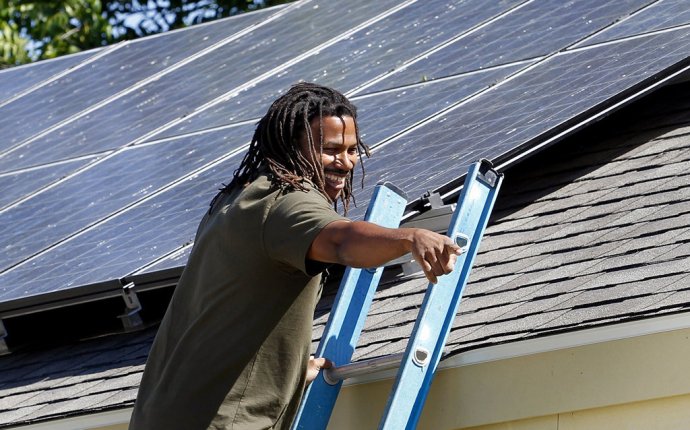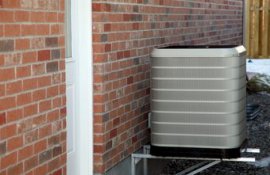
solar panel installation business
 Electric heat pumps are ideal for moderate climates, according to the U.S. Department of Energy.
Electric heat pumps are ideal for moderate climates, according to the U.S. Department of Energy.
Images
Solar panel installation is a business with a future. The International Energy Agency expects solar installations to provide one-quarter of the world's energy needs by 2050, and it predicts that 11 percent of solar energy will come from panels installed on houses and office buildings. People who live in sunny climates have traditionally been more apt to take advantage of solar technologies, but as panels become more efficient and less expensive, solar installations increasingly make sense virtually anywhere. You don't have to be an electrician to go into business installing solar panels, but it helps.
1. Research the licensing you need in your state to conduct solar installations. Massachusetts and Connecticut both require an electrician's license before you can pull permits for a solar installation, and Massachusetts additionally requires a construction license. In other states, you can work on 12-volt photovoltaic (PV) wiring without a license only to the point where it ties into the inverter. From that point on, you are wiring 120-volt electricity, and you need an electrician's license. Some states may also require you to have a roofing contractor's license to conduct rooftop installations.
2. Obtain certification with the North American Board of Certified Energy Practitioners (NABCEP). While not required to conduct solar installations, NABCEP certification is widely recognized in the solar industry and identifies you as a professional.
3. Secure the necessary business license though your county or municipality and obtain an Employer Identification Number from the Internal Revenue Service if you intend to hire employees.
4. Think of a name for your company and file it with the county as a fictitious business name or "doing business as." While this step is not essential, it will allow you to write checks, conduct financial affairs and advertise using the name of the company, rather than your personal name.
5. Search for solar tax incentives available for your area on the Solar Energy Industries Association website or on the Database for State Incentives for Renewables & Efficiency (DSIRE). These incentives make installing solar panels cost-effective for your prospective clients, and your familiarity with them will be an important factor in securing new business.
6. Establish connections with wholesale suppliers of solar panels, batteries and miscellaneous equipment needed for a solar installation. Be sure to identify yourself as a contractor so that you get wholesale prices.
7. Buy a truck or van large enough to handle the equipment you need to carry, or buy a fleet of trucks if you plan to start a large operation. You may be able to secure a business loan from a local bank or credit union to offset your initial start-up costs, which will also include buying the tools you need.
8. Advertise your services in local newspapers and real estate magazines. Post flyers at local lumberyards and in supermarkets. Once your business starts, you'll be able to cut back on advertising as more and more of your clients begin coming through referrals.
Tip
- If you don't have an electrician's license and you live in a state that doesn't require one for PV installers, you can always contract post-inverter wiring to someone who does have a license. It's a good idea to establish working relationships with two or three electricians so you always have someone available when you need them.









